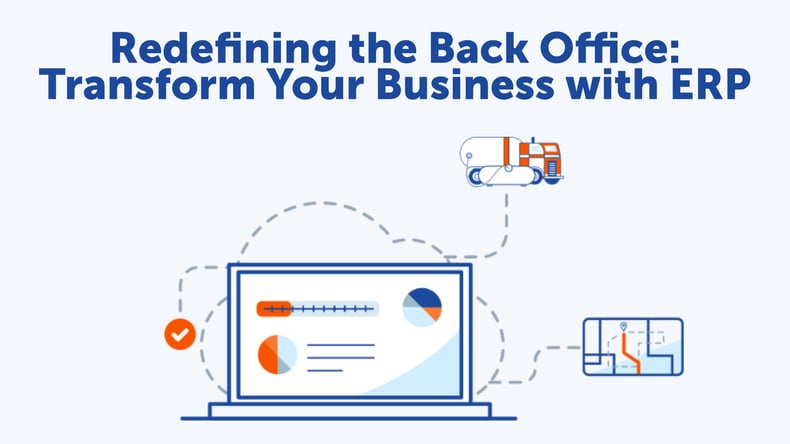
There’s a good chance that you’ve heard of enterprise resource planning (ERP) software but are you aware of how it can transform your business? You may already know that it helps most businesses organize data across their departments, from accounting to risk management to supply chain operations. But did you know there is ERP software built specifically for the oil and gas industry?
More oil and gas businesses are realizing that it takes more than just the traditional back office software to manage their operations. Moreover, most are also aware that managing their fleet operations with spreadsheets just isn’t working. Spreadsheets are easy to create, but using them to juggle drivers, schedules, deliveries, suppliers, customer service, payrolls, and more isn’t efficient or sustainable.
With powerful financial applications simple enough for even the smallest of businesses, an ERP system empowers you to operate more efficiently and grow your business with ease. Read on to learn how.
Streamline Your Operations
An ERP system will fully unify data across your teams. It will serve as a single system of reference for your finance, customer service, HR, fleet management, and other back office teams.
Having centralized data will help your teams:
Maintain data accuracy.
Any data that team members add will sync across the entire ERP system. You can also integrate and sync data from your CRM. Everyone will always have access to the most up-to-date information. Plus, your team will not need to manually check and update data across systems and files.
Collaborate more easily.
Document owners or administrators can share important files across teams, departments, and outside users. Users can choose their language and currency. This feature allows your teams to work with other teams in real-time, even if they’re from different companies.
Automate workflows.
Team members can even automate key business processes, approvals, and notifications. For example, they can automate the process of submitting delivery invoices or sending out driver schedules. Automations save critical time and reduce human errors.
An ERP system maintains data accuracy, facilitates collaboration, and automates workflows. Your teams will be able to focus on higher-level projects with help from this support. They’ll be empowered to increase their productivity and help your business grow.
Increase Visibility into Performance
An ERP system doesn’t just serve as a single system of reference—it also makes it easier than ever for you to access critical data and reports. You’ll have more transparency into your business’s performance than ever before.
An ERP system will offer:
Out-of-the-box financial reports.
Your team will have access to a general ledger, where you can find all of your financial information. You can select financial periods, ledgers, allocations, and more to see the exact data you need.
Intercompany accounting capabilities.
You can easily separate and analyze data between companies if you run a large organization. This feature allows you to track financials and create reports for an unlimited number of related companies.
Always-on access.
You aren’t always at a desk when you need to access reports. An ERP system will allow you to access the fleet or financial data you need, right when you need it. With the correct permissions, you can see your data from any device at any time.
Spreadsheets can’t come close to delivering this kind of transparency. With an ERP system, your leadership and management teams will finally know exactly how your company is performing, across all departments, teams, and clients.
Improve Strategic Decisions
You probably review your business’s performance data before you make important strategic decisions. That data won’t serve you well if it’s not accurate or thorough. Plus, it’s hard to compare data when it’s stretched across multiple spreadsheets. You can make more informed decisions with an ERP system.
ERP software will ultimately help you:
Understand the exact status of your business.
All of your business reports and data will be centralized in your ERP. You’ll know exactly how your finances and fleet are performing after reviewing your reports and dashboards.
More easily highlight areas for improvement.
ERP software organizes data in clear, easy-to-read charts. This makes it even easier for you to identify which aspects of your finances, internal teams, or fleet need improvement.
Predict future trends more accurately.
ERP software can offer built-in features like microclimate-based weather forecasting. These and financial planning tools help you predict future trends more accurately.
An ERP system will give you an accurate, comprehensive overview of your business. This overview makes it easy to identify areas for improvement. ERP software also provides tools that help you predict future trends accurately. Use these features, and you will be able to make more informed, better decisions that accelerate the growth of your oil and gas business.
ERP software is popular in many industries—and now it’s time for the oil and gas industry to catch up. Set aside spreadsheets and adopt an ERP system to streamline your teams, increase visibility into your business performance, and make better business decisions.
Ready to move your business forward with ERP software? Contact us today to set up your free demo or visit https://vertrax.com/energy/ for more information.

